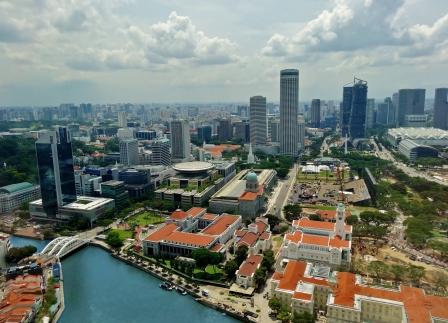Lessons of Singapore’s Development for Other Developing Economies
May 14, 2018

What lessons can developing economies take from Singapore’s success story?
Dr Goh Keng Swee is recognized as Singapore’s first economic architect. Despite his passing on 14 May 2010, the visionary’s legacy lives on. Dr Goh firmly believed that non-economic factors trumped economic ones in determining a developing economy’s success. Like other developing nations, Singapore faced severe political and economic challenges at the time of its independence in 1965. Despite massive unemployment, shortage of domestic savings, militant labour unions, difficult housing conditions, and racial riots, Singapore managed to achieve rapid high growth from 1965 to 1975. A/P Tilak Abeysinghe (Department of Economics) in ‘Lessons Of Singapore’s Development For Other Developing Economies’ (Singapore Economic Review, 2015) outlines the non-economic factors and development strategies that played a vital role in Singapore’s success. He asserts that developing countries can learn from Singapore’s success and formulate their own development strategies. Abeysinghe stresses that the role of government and good governance are crucial in addressing the challenges of economic inequality, environmental degradation, and terrorism.
Abeysinghe points out that political stability and quality of governance, national security, and presence of skilled professional politicians were important non-economic factors that played a major role in developing Singapore. He emphasises that unlike other developing countries, Singapore’s cabinet is made up of highly skilled professionals drawn from various sectors and paid competitive salaries to attract them to politics. Abeysinghe believes that having competent politicians makes a difference in terms of foresight and vision. Apart from non-economic factors, development strategies targeted at education and training, infrastructure lased with efficient services, and enhancing international competitiveness and development welfare to provide equal opportunities are key lessons that developing nations can take from Singapore. Abeysinghe concludes that developing countries should not just seek faster growth to catch up with more developed countries, but aim instead for sustained growth.
Read more on what Abeysinghe says about the growth story of Singapore here.
